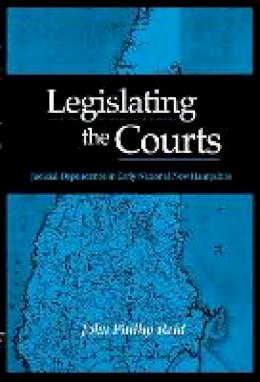
Legislating the Courts
John Phillip Reid
In the first decades of the nineteeth century, legal reformers in the United States strove to standardize courtroom procedures and expand judges' power at the expense of jurors while simultaneously imposing uniformity upon judicial decision making. Reid's previous book, Controlling the Law, offered a case study of this process, focusing on New Hampshire Chief Justice Jeremiah Smith and Governor William Plumer. Now in Legislating the Courts, Reid returns to the careers of Smith and Plumer to continue the story of judicial authority in the early republic.
American constitutional historians and lawyers generally assume that the current doctrine of judicial supremacy ... Read more
To illustrate his points, Reid refers to three government practices that together with other matters altered judicial salaries—mandated by the constitution to be "permanent" and "honorable"—and that created a dependent judicial system. The first practice, "restoring litigants to their law," gave litigants who had lost a jury trial and had judgments pronounced against them the option to petition the legislature to be relieved from the judgment and to be granted a new jury trial. In the second practice the legislature acted on the premise that it had the authority to investigate the conduct of judges and require them to explain why they behaved in certain ways. Finally, in the third practice, the legislature exercised the authority to remove judges from their tenure at "good behavior" by "legislating" them out of office and then appointing a new bench.
Despite an attempt to subordinate the judiciary to the will of the citizenry, as represented by the state legislature, Reid finds that judges managed to maintain their autonomy, subject only to the dictates of the law.
Show LessProduct Details
About John Phillip Reid
Reviews for Legislating the Courts
Peter Karsten, University of Pittsburgh A fascinating examination of the emergence of judicial independence and legal professionalism in New Hampshire. Reid's sound common sense and profound ... Read more
